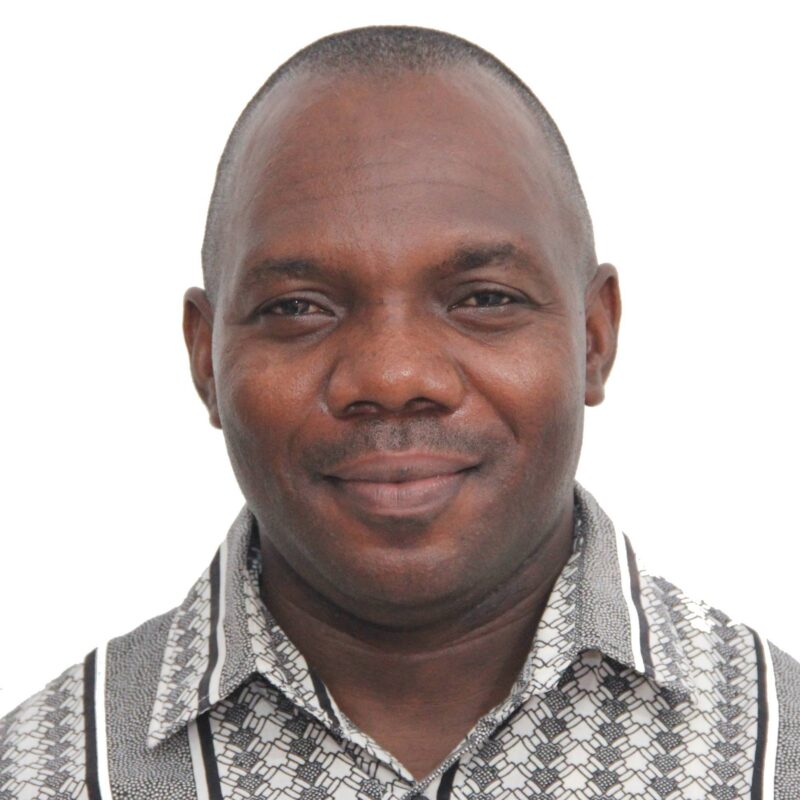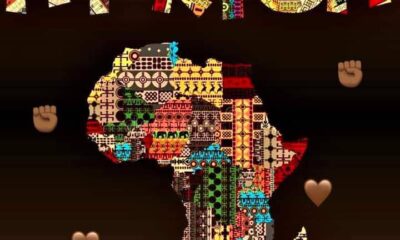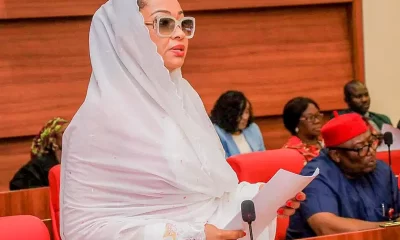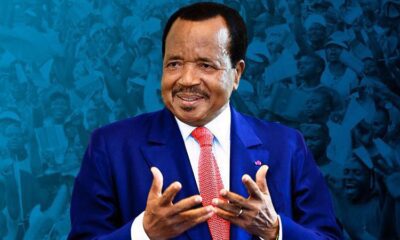National Issues
UN Security Council: It’s Time Africa Builds Its Own Council –By Matthew Ma
The moment has arrived for Africa to transition from a position of dependence to one of self-determination, moving beyond the need to request a place at the global governance table. Instead, the continent should take proactive steps to establish its own security council—an autonomous body informed by the principles of the African Union yet endowed with the necessary authority to exercise independent power.

Africa’s push for a permanent seat on the UN Security Council gained significant traction on 24th August during the 2025 General Assembly, as Kenyan President William Ruto delivered a poignant critique of the Council’s current structure. In a speech that resonated deeply across the continent, Ruto labeled Africa’s exclusion from permanent membership as “unacceptable, unfair, and fundamentally unjust.” “One cannot claim to represent the United Nations while ignoring the voices of 54 nations. It is simply not feasible,” Ruto asserted to world leaders in New York, challenging the legitimacy of a system that continues to marginalize Africa despite its pivotal role in global peacekeeping and conflict resolution.
For nearly eight decades, the United Nations Security Council (UNSC) has served as the primary institution responsible for maintaining global peace and security. Established in the wake of World War II, the Council was created to navigate the complexities of international diplomacy and conflict resolution. However, a significant disparity remains: Africa, a continent boasting over 1.3 billion people and a wealth of diverse natural resources, continues to be underrepresented in terms of permanent seats on the UNSC. Despite the significant implications of decisions made regarding Africa from New York, the voices and perspectives of African nations are notably absent from the decision-making process. This exclusion is not merely a matter of oversight; rather, it represents a profound structural injustice embedded in the international system, which continues to reflect the power dynamics and hierarchies established in the post-World War II era.
The five permanent members of the United Nations Security Council—namely the United States, Russia, China, France, and the United Kingdom—hold veto power, allowing them to block resolutions unilaterally. This privilege is not afforded to any African nation. As a result, African countries often find themselves marginalized in discussions on critical issues, including ongoing conflicts, security threats, and pressing challenges such as climate change. This is particularly troubling, given that Africa frequently bears the brunt of the repercussions stemming from global inaction or misguided policies. As a result, the perspectives, needs, and voices of the African continent are frequently marginalized in pivotal discussions that influence its future. This creates a cycle where African nations must contend with decisions made by external powers, often without their involvement or consideration.
The absence of African voices in permanent decision-making processes of the UN Security Council has significant and practical implications for the continent. From the ongoing conflicts in the Sahel region to the persistent instability in the Horn of Africa, as well as the various climate-induced crises affecting nations across the continent, it is clear that policies are often imposed without facilitating meaningful African ownership or active participation. This lack of inclusion not only fosters a sense of resentment among African nations but also reinforces the perception that global governance systems are inherently biased against the interests of the developing world. It is essential to acknowledge that Africa plays a crucial role in global peacekeeping efforts, providing a significant number of troops and financial resources to the United Nations Peacekeeping Mission. Despite this vital commitment, African nations are often relegated to non-permanent, rotating seats on the UN Security Council when it comes to shaping crucial decisions that impact global policy. This arrangement severely limits their capacity to influence discussions and advocate for their interests. Such an imbalance is not merely a question of fairness; it raises serious concerns about the long-term sustainability of global governance structures, which fail to represent the realities and needs of a continent that houses a substantial portion of the world’s population.
African leaders have continually called for substantial reforms within the United Nations Security Council. This framework advocates explicitly for the allocation of at least two permanent seats and five non-permanent seats for African nations on the Council. The reasoning behind this demand is clear: the challenges of global peace and security cannot be effectively tackled if one of the world’s most populous and influential continents remains marginalized in international decision-making processes. Despite the clarity and rationale of this argument, attempts to reform the Security Council have consistently faced significant obstacles. The permanent member states, especially those wielding veto power, demonstrate a substantial reluctance to diminish their influence and authority within the Council. This resistance has resulted in a frustrating stalemate that hinders the implementation of meaningful changes. As a result, the United Nations system remains entrenched in outdated practices and power dynamics that fail to accurately reflect contemporary geopolitical realities. In light of this ongoing stasis, a discourse is developing within Africa regarding the urgent need to pursue an independent path. Some leaders and scholars argue that if the international community remains either unable or unwilling to provide proper representation for Africa, the continent may need to explore alternative avenues to promote its interests and ensure its voice is heard on the global stage.
The pressing question facing the global community is this: Should Africa consider establishing its own security council? In other words, if the world continues to exclude Africa from key decision-making processes, should Africa take the initiative to establish its own platform for engagement? One proposed solution is the establishment of a Pan-African Security Council, a robust, African-led institution designed to effectively address regional conflicts, engage in diplomatic negotiations with global superpowers, and develop a comprehensive security strategy tailored to the continent’s unique needs and priorities. However, embarking on this journey will not be without significant challenges. Achieving the unprecedented level of unity among Africa’s diverse nations poses one of the most formidable obstacles. The continent comprises 54 sovereign countries, each with its own political dynamics, cultural contexts, and economic interests. Therefore, fostering a cooperative spirit that transcends historical rivalries and divisions—often exacerbated by external influences—is essential for the success of such an initiative.
In addition to fostering unity, establishing this council would require a significant financial investment. African nations must allocate resources not only for operational expenses but also for infrastructure development, capacity-building, and technological advancements to ensure the council operates effectively and credibly. Moreover, a steadfast commitment from African leadership is essential to prioritize collective security and collaborative engagement over individual interests. Nonetheless, the potential benefits of creating an independent Pan-African Security Council could be substantial. It could herald a new era in which African nations reclaim their sovereignty, actively participating in shaping their destinies rather than remaining in a state of perpetual dependency. By taking charge of their own security challenges and engaging on the global stage, African countries could redefine their relationships with external powers, positioning themselves as equal partners and lasting contributors to international dialogue and action. Eventually, this bold initiative could lead to enduring changes that not only benefit Africa but also enhance global governance, fostering greater stability and equity.
The moment has arrived for Africa to transition from a position of dependence to one of self-determination, moving beyond the need to request a place at the global governance table. Instead, the continent should take proactive steps to establish its own security council—an autonomous body informed by the principles of the African Union yet endowed with the necessary authority to exercise independent power. This transformation could significantly reshape Africa’s standing and influence in international affairs. The proposed continental security council would empower Africa to articulate a unified stance on global issues. This unity can enhance its negotiating power and ensure that African perspectives and priorities are adequately represented on the world stage. It could enable the council to intervene effectively in internal conflicts. An empowered African security council would have the capacity to take decisive action in intra-continental disputes and emerging conflicts, addressing issues proactively before external entities feel the need to intervene.
This forward-thinking approach could promote greater stability within the region and help protect the interests and well-being of African populations. It could empower the council to exercise control over natural resources. Africa is abundant in natural resources, yet it frequently negotiates from a position of disadvantage. A dedicated council would enable the continent to regain sovereignty over its resources, fostering strategic partnerships based on mutual respect and equitable benefits, rather than exploitative practices. Ultimately, it could enable the council to strengthen accountabilities for all stakeholders involved. The formation of this council would introduce mechanisms designed to ensure transparency and accountability from both African leaders and international actors engaged on the continent. By establishing high standards for governance and ethical practices, Africa can cultivate trust among its citizens and sustain a constructive relationship with the international community.
Critics may contend that Africa’s fragmentation and political divisions make such a bold initiative unfeasible. However, history shows us that unity often emerges from necessity. If the United Nations Security Council fails to adapt to the realities of the 21st century, Africa must assert its position and demonstrate that it will not remain on the periphery. The lesson is clear: Power is not granted; it is constructed. Africa does not need to await permission to assert its significance. By establishing its own council, the continent can transition from being merely an object of international policy to becoming a genuine architect of its own destiny.
As Africa considers establishing its own security council, it is essential not to neglect the need for reforming the United Nations system. In pursuing these reforms, Africa should also prepare for alternative governance and security pathways. This requires a dedicated effort to strengthen the African Union (AU), which plays a vital role in fostering continental unity and facilitating decision-making. In addition to strengthening the AU, it is crucial to empower regional organizations, such as the Economic Community of West African States (ECOWAS) and the Southern African Development Community (SADC). These regional blocs are essential in managing conflicts and orchestrating responses to crises within their respective regions. Furthermore, investing in African-led peacekeeping operations can significantly enhance the continent’s ability to maintain stability and security, addressing its unique challenges and needs.
Simultaneously, African leaders must confront and address systemic challenges, such as corruption, authoritarianism, and disunity, that persist in numerous nations. Global powers often cite these internal issues as reasons for marginalizing Africa in international discussions and decision-making processes. By directly addressing these challenges, African countries can strengthen their positions both domestically and on the global stage. The geopolitical landscape is evolving rapidly, and Africa must seize this opportunity to assert its rightful position in the world. Whether at the United Nations negotiating table or in discussions held on the continent itself, Africa must advocate for its interests with steadfast determination—not as a concession to external actors, but as an inherent right that merits recognition and respect. The moment for Africa to take its rightful place in global leadership is now, and efforts to achieve this goal must be both intentional and sustained.
In conclusion, the lessons of history remind us that dignity is not something that is handed over; it is something that must be actively claimed and asserted. Suppose Africa is consistently overlooked and denied a meaningful role in global decision-making. In that case, the continent must begin to forge its own path by constructing a metaphorical table of its own. This can manifest through a revitalized and reimagined African Union, bolstered continental institutions, and cohesive regional voices that serve as platforms for establishing and prioritizing African agendas and aspirations, all determined by Africans themselves. The call to action does not signify a withdrawal from current global partnerships; instead, it is a demand for an end to the ongoing state of waiting for acknowledgment and inclusion. A confident Africa should aspire to do more than merely knock on the doors of major global powers in search of entry; it must showcase its capacity to envision and implement a path that aligns with its distinct identity and aspirations.
Historically, Africa has often been portrayed as a reactive participant in global discussions, responding to external agendas rather than shaping its own. However, the tides of historical change are beginning to shift in favor of the continent. From climate negotiations to international trade agreements, Africa’s bargaining power and influence are steadily increasing. The critical question now is whether the continent will seize this pivotal moment to transition from a position of pleading for inclusion to one of actively constructing a new table—one that genuinely reflects Africa’s rightful and influential place in the global arena. To facilitate this transition, African leaders and stakeholders must engage in constructive dialogue, cultivate innovation, and establish strategic alliances. Only then can Africa truly assert itself as a key player on the world stage, promoting not only its own interests but also making meaningful contributions to global challenges and discussions. The time for action is now; Africa’s destiny should be envisioned, articulated, and realized by its own people.
Rev. Ma, S. J., is a Jesuit Catholic priest of the North West Africa Province of the Society of Jesus. He currently writes from Abuja, Nigeria.










